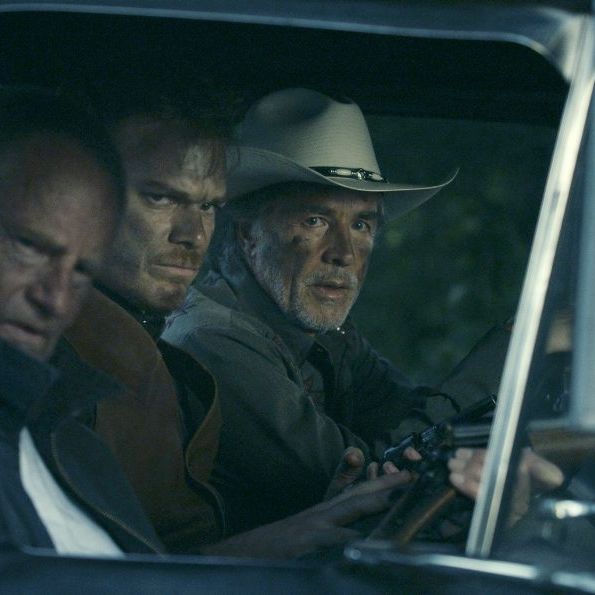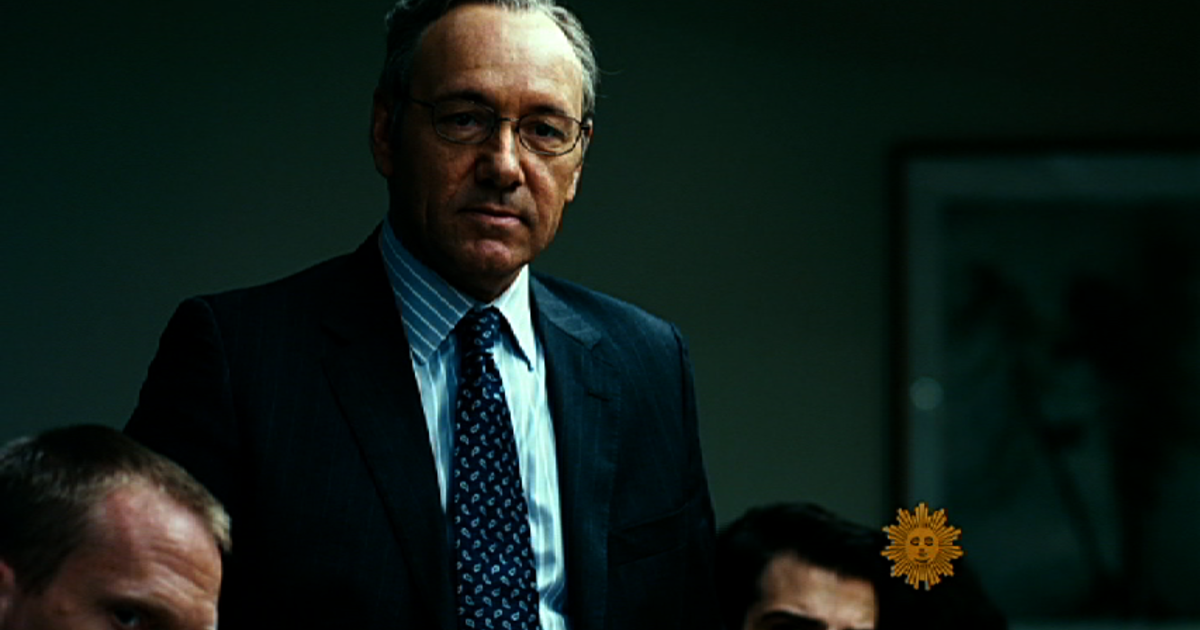
Whitford’s Dean is too chummily direct to be hiding anything, right? A villain would be more evasive. The performances are devilishly clever - heightened but without a whisper of camp. Peele is after less obvious targets: rich white liberals as black soul-suckers. There are plenty of savory horror tropes, but Get Out wouldn’t work as well if, in the real world, white people weren’t so unconvincing in their assurance that black people have little to fear apart from those fascist-racist cops and their fascist-racist Republican enablers. His years crafting sketches for Key & Peele have taught him the difference between parody and satire. His surrealist sequences are gorgeously lyrical, his gore, when it finally comes, Pollock-splattery. His “Boo!” moments make you jump and then laugh at yourself for jumping - then steel yourself to jump again. He uses the wide screen like John Carpenter in Halloween, to lull but decenter you. This is Peele’s directorial debut, but it feels like the work of someone who has been making features for years. Dean insists that the two have been with them a long time and that they’re like family. And Dean is mindful of the awkwardness Chris feels in the presence of their black housekeeper and gardener, who are a couple. Dean tells Chris he’d have voted for Obama a third time. Rose’s parents, Dean (Bradley Whitford) and Missy (Catherine Keener), turn out to be conscientious liberals and hugely welcoming.
#DAVID EDELSTEIN BEST MOVIES 2017 MOVIE#
Before they leave, he learns she hasn’t told them he’s black, and he’s a bit nervous - and so are we, given that the movie opens with a young black man getting snatched from a suburban sidewalk and thrown into a white car playing the ’30s music-hall ditty “Run, Rabbit, Run” (“Run rabbit - run rabbit / Run! Run! Run!”). Daniel Kaluuya plays Chris, a black photographer who travels to an affluent suburb with his white girlfriend, Rose (Allison Williams), to meet her family.
#DAVID EDELSTEIN BEST MOVIES 2017 PROFESSIONAL#
Grant Scott is the founder/curator of United Nations of Photography, a Senior Lecturer and Subject Co-ordinator: Photography at Oxford Brookes University, Oxford, a working photographer, documentary filmmaker, BBC Radio contributor and the author of Professional Photography: The New Global Landscape Explained (Routledge 2014) , The Essential Student Guide to Professional Photography (Routledge 2015) , New Ways of Seeing: The Democratic Language of Photography (Routledge 2019). His film Do Not Bend: The Photographic Life of Bill Jay was first screened in 2018 He is the presenter of the A Photographic Life and In Search of Bill Jay podcasts.Jordan Peele’s Get Out is the satirical horror movie we’ve been waiting for, a mash-up of Guess Who’s Coming to Dinner? and The Stepford Wives that’s more fun than either and more illuminating, too. Published 2011, by Thames & Hudson, 524 pages.ĭr. Magnum Contact Sheets, by Kristen Lubben. Published 1998, by Thames & Hudson, 352 pages.

W Eugene Smith: The Camera as Conscience, by Gilles Mora and John T. Published 1994, by Random House, 183 pages.Īppearances: Fashion Photography Since 1945, by Martin Harrison.


The Final Four Desert Island Books Grant Chooses this week:Įvidence 1944-1994, by Jane Livingston, David A.Ross and Richard Avedon. In this episode he reveals the final four of those photo books and his luxury item choice. In episode 222 UNP founder and curator Grant Scott has lost his way, been set adrift upon the open seas and found himself on a desert island with only eight photo books for company, the complete works of William Shakespeare, the Bible and just one luxury item.


 0 kommentar(er)
0 kommentar(er)
